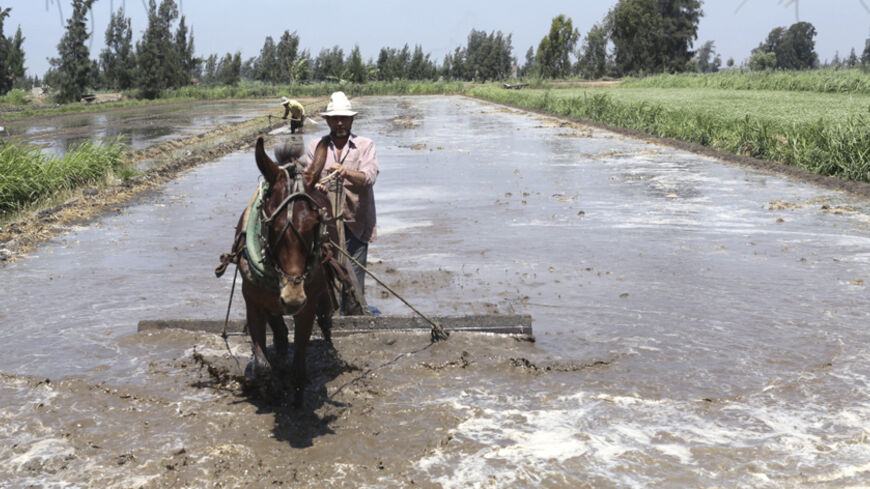CAIRO — Egyptian President Abdel Fattah al-Sisi’s four-year mandate includes a plan to reclaim and cultivate an additional 4 million acres of agricultural space in Egypt, despite the country's struggle with a dwindling water supply and an increasing population that is forced to share the stagnant water from the Nile River, estimated at 55 billion cubic meters yearly.
Egypt is experiencing a crisis with the Nile’s headwater states, following the signing of the Nile Basin Initiative in 2010. Egypt and Sudan, the two countries at the mouth of the Nile, are threatened by the initiative in that they are to lose their part of the water share set by previous agreements — something the headwater states refused to recognize in the initiative's new articles in their desire to redistribute the sharing of the Nile water.



